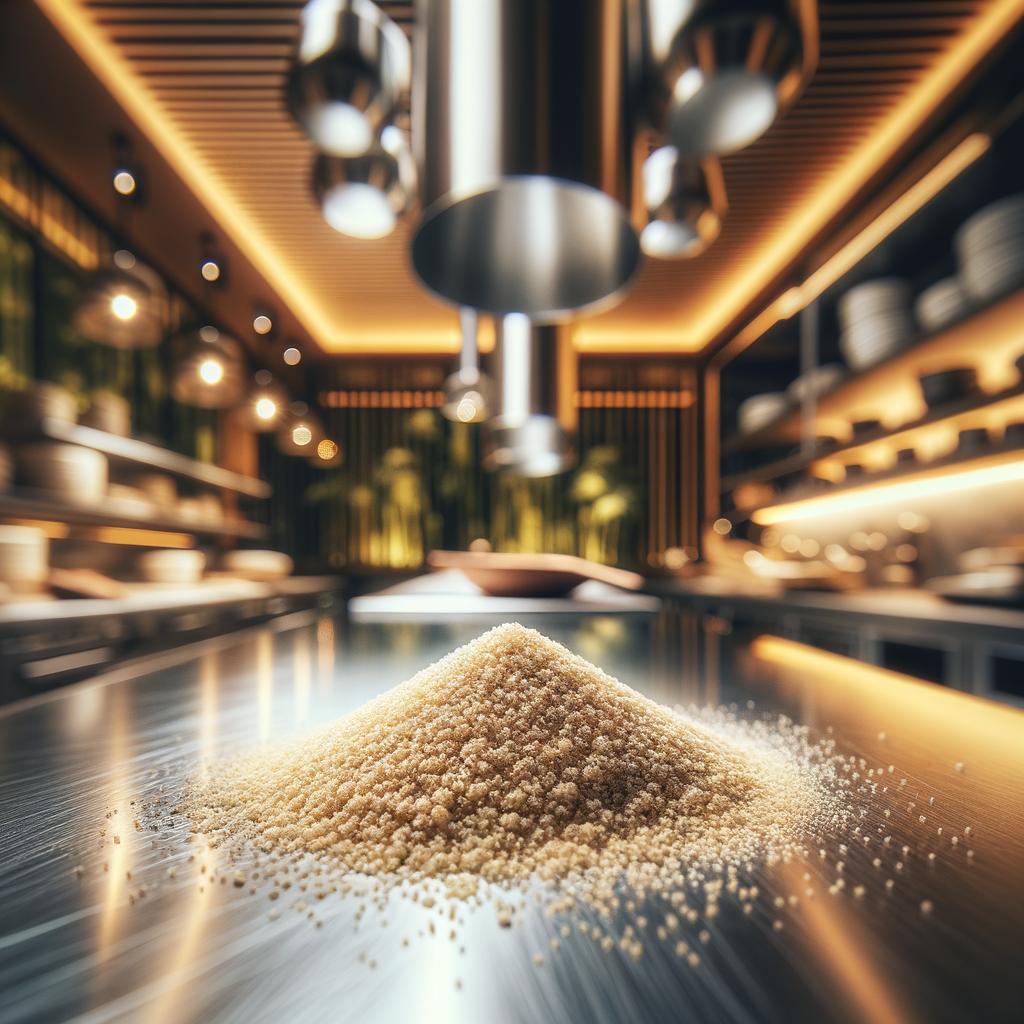Roasted Rice Powder

Description
Roasted rice powder, also known as Khao Khua, is a delightful ingredient that sparks the imagination. It is a golden-hued powder with a coarse texture, similar to finely ground sea salt. The aroma is intoxicating, a blend of nutty, toasty, and slightly sweet scents that evoke images of serene Asian paddy fields under the warm, setting sun. The flavor profile is complex and satisfying - an intriguing mix of nutty and smoky with a hint of earthy bitterness. The unique characteristic of roasted rice powder lies in its ability to impart a distinctive crunch and depth of flavor, setting it apart from other grain-based ingredients.
Primary Uses
Roasted rice powder is a staple in many Asian cuisines, particularly Thai and Laotian cooking. It is a key component in dishes like Larb, a spicy meat salad, and Nam Tok, a grilled beef salad. It adds a delightful crunch and a layer of toasty flavor that enhances the overall taste of the dish. Roasted rice powder is also used as a thickening agent in soups and sauces, lending a rich, full-bodied texture. Beyond its culinary uses, roasted rice powder is also used in traditional medicine in some cultures, believed to aid digestion and soothe stomach ailments.
History
The history of roasted rice powder is deeply entwined with the agricultural traditions of Southeast Asia. Rice, being a staple crop, has been cultivated in this region for thousands of years. Over time, the practice of roasting and grinding rice evolved as a way to preserve the grain and add flavor to traditional dishes. The use of roasted rice powder has evolved over the centuries, from a humble ingredient in home cooking to a coveted component in gourmet cuisine. Folklore has it that farmers would carry a pouch of roasted rice powder while working in the fields, adding it to their meals for a quick energy boost.
Nutritional Information
Roasted rice powder is not only flavorful but also nutritious. It is rich in carbohydrates, providing a quick source of energy. It also contains dietary fiber, which aids digestion. In terms of vitamins and minerals, it offers a good amount of Vitamin B, essential for brain function, and minerals like magnesium and phosphorus, which are crucial for bone health. Compared to raw rice, roasted rice powder has a lower glycemic index, making it a healthier choice for those monitoring their blood sugar levels. However, as with all foods, moderation is key to enjoying its benefits while minimizing any potential health risks.

